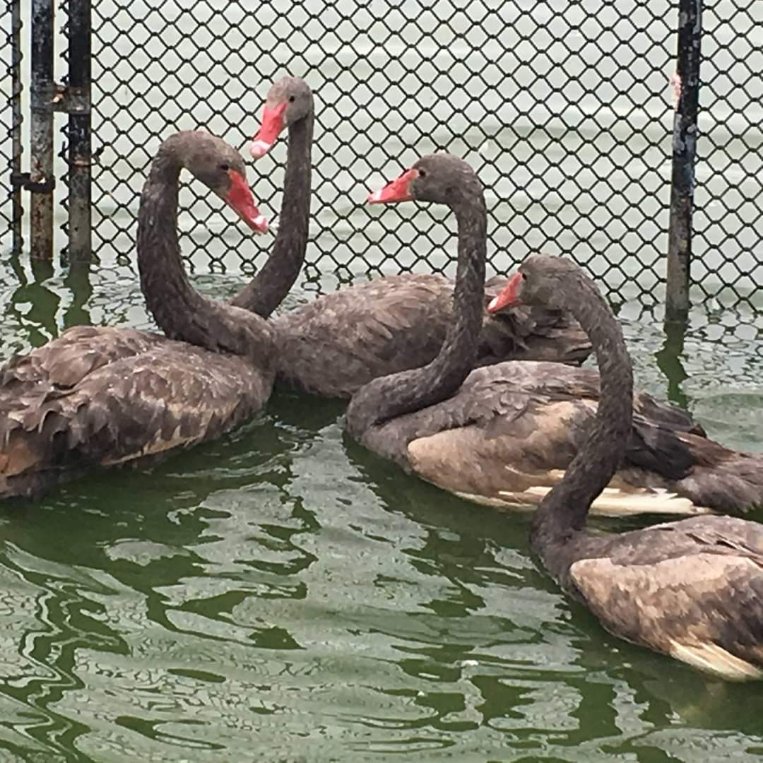Lakeland - The Gray Swan City?

Located in central Lakeland, Lake Morton is home to a diverse array of bird species and flourishing wildlife. Of all the birds at Lake Morton, swans are the most iconic, earning Lakeland the nickname “The Swan City.” Notably, Queen Elizabeth II gifted Lakeland the White Mute swans. However, one of Lake Morton’s lesser-known treasures is its rare gray swan population, possibly the only one of its kind.
Though often assumed to be hybrids of White Mute and black swans, these gray swans, known as “Merles”, are actually mutated black swans. The Merles’ unique color results from a rare genetic mutation known as leucism, similar but distinct from albinism.
The Origins of the Lakeland Merles
Around 1998, the first Merles hatched from a pair of black swans. The veterinarians who cared for them named them “Lakeland Merles”, inspired by their distinctive coloring. Lakeland had acquired its first black swans only a few years earlier, and these gray swans were a surprising but beautiful addition.
For this mutation to be inherited, both swan parents must carry the leucism trait. “We let them do their own thing,” says Dr. Price Dickerson, a local veterinarian for the swans. “The Merles do seem to prefer breeding with other Merles, though.” Today, there are about eight Lakeland Merles.
While they remain a rare sight, the Lakeland Merles are not the only black swans affected by leucism. The first documented Merles were bred in the early-to-mid-1900s by Jean Delacour, a French ornithologist. They have also been observed in Australia and in some parts of the United States, though they are usually only spotted individually. There is typically only one or two per city, making Lakeland unique for its unusually high concentration of these swans.
The Importance of Protecting Lakeland’s Merles
With Lakeland’s Merle population considered to be the largest in the world, preserving their habitat is imperative. Community members play a vital role in this. Littering around Lake Morton and feeding swans improper foods can create unhealthy conditions for the Merles and other wildlife.
Safe foods for swans include:
- Specialized swan and duck food
- Corn
- Chopped cabbage
- Spinach
- Frozen peas
- Lettuce
- Potatoes
Bird experts associate Lakeland with the Merles more than any other location. Therefore, it can be said that Lakeland is not only the Swan City, but the Gray Swan City. With community support, the Lakeland Merles may thrive for generations to come.
Rousos, Rick. “Mutant Swans Could Mean Hundreds of Dollars for City.” The Ledger, 26, Dec. 2002.
“The Silver Swan.” Angelfire. ; The Regal Swan® Foundation.
“Re: ‘Albino’ Black Swans?” The Regal Swan, 23, July 2013.
Tony Whitehead.“Leucistic Birds.” WildLight Photography, 16 Dec. 2018.
“Lakeland hatches black swans from incubator.” ABC Action News, 06 Feb. 2016.
“Feeding Swans and Cygnets: What to feed and what to avoid.” Swan Lifeline.
“Swans.” Lake Morton Neighborhood.
Asadi-Denham, Felix. “Albinism versus Leucism: In the Wild and at Our Parks.” National Park Service, 01, October 2019.
“Overview of Our Lakes.” City of Lakeland.